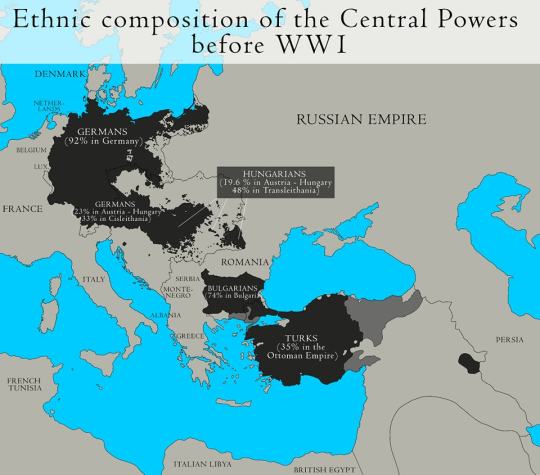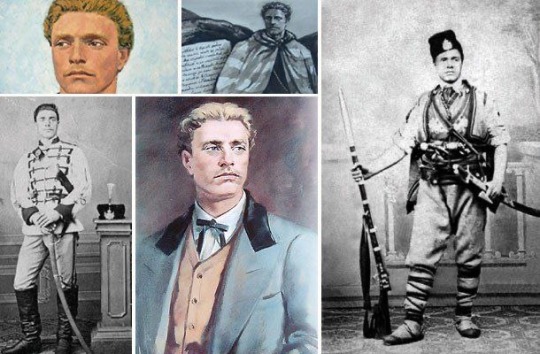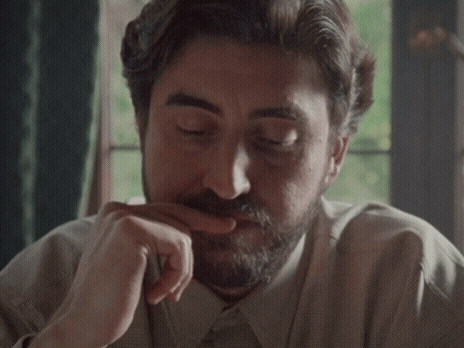#Bulgarian composer
Explore tagged Tumblr posts
Text
youtube
Lubomir Pipkov (1904-1974) - Symphony No.1 (1940)
Sofia Orchestra, Ruslan Raychev (cond.)
3 notes
·
View notes
Text
Boryana Kaleyn 🤝 Yuuri Katsuki
Having routine music composed for them
#rhythmic gymnastics#yuri!!! on ice#y!!!oi#boryana kaleyn#yuri katsuki#katsuki yuuri#yuuri katsuki#yes this is how im telling yall bubas hoop music is composed specifically for her and the title includes her name#bulgarian rg fed hyping up bubas hoop again hope that doesnt lead to me being disappointed lol#tho ngl i am excited
12 notes
·
View notes
Text
Kromatika 2023 2024 Slovenska Filharmonija Ljubljana
Slovenska Filharmonija – gov.si Last night’s performance by the Slovenia Symphony Orchestra was exceptional. Seeing them live on stage was a fantastic experience! Bulgarian Conductor Rossen Milanov led the orchestra. Rossen Milanov Conductor – cd-cc.si kromatika Kromatika 2023 2024 The Kromatika 2023 2024 performance last night was the sixth in a series of nine. Kromatika concerts highlight the…

View On WordPress
#Academy of Music Ljubljana#Brass Quintet SiBrass#Brass Trio RTV Slovenia#Bulgarian Conductor Rossen Milanov#Cankarjev Dom Gallus Hall Ljubljana#Horn Soloist Mihajlo Bulajić#Kromatika 2023 2024#Leoš Janáček Czech Composer#Ljubljana Conservatory#Maribor Glasbena Matica Choir and Orchestra#Marjan Kozina Symphonic Poem Antiquity (Davnina)#Marjan Kozina Symphony in Four Movements#Novo Mesto Slovenia#Orchestral Rhapsody Taras Bulba by Czech Composer Leoš Janáček#Post-War Slovenian Philharmonic#Reinhold Glière Concerto for Horn#RTV Slovenia Symphony Orchestra Ljubljana#Russian Composer Reinhold Glière#Russian Novelist Nikolaj Gogol#Slovenia Composer Marjan Kozina#Slovenia Symphony Orchestra#Slovenian Partisan Army 1941-1945#Slovenska Filharmonija#Taras Bulba and Other Tales#Wind Quintet Quintologia#Zaporozhian Cossack Taras Bulba
0 notes
Video
youtube
youtube
youtube
youtube
#petko staynov#disabled composers#classical music#balkan music#bulgarian music#orchestra#dance suite#bulgarian dance
0 notes
Text
Fun Little Merlinverse Language Headcanons
Ok, so we know most of our Merlins are old af, and that most of them have the patience of saints so they usually don't get genuinely pissed off. But could you imagine how funny it would be if they started cussing in 'old' languages when they do snap? Except the languages they use are just normal languages irl.
Like I can so picture Sena seething at someone in Hindi but still keeping composed, only to snap and absolutely drag them in Tamil (like it is a good thing no one understands him otherwise they would not be able to look him in the eye afterwards). Or if he wants to pull the Divine Judgment card in more serious/formal moments he starts calmly lecturing them in Sanskrit putting every ounce of his godly authority behind each word (I think in that moment everyone would understand exactly what he's saying despite not being able to identify individual words).
Meanwhile Celestino (@meepinmeat) just takes a deep breath before slowly but purposefully reading someone to filth in old Latin. People might not understand the words, but they definitely get the gist when they can feel static crackling through the air due to the Archon's rage. ("Well, mark me down as scared and horny"- Valen, probably.)
And imagine everyone's surprise when soft-spoken little Pirin (@yohohonabottle) goes from irritable bat chattering to absolutely intense Slavic cussing, looking absolutely ready to curse someone's entire bloodline as he yells at them in Bulgarian. (Considering how terrifying Pirin's curses actually are, I cannot blame Val, Sinbad and Soren for being terrified of their little bat in that moment.)
As for Magister Starhawk (@fujimomozane), this man looks like he slays so hard. So I can't help but picture him being calm and collected before muttering the most horrendously accurate and specific insults possible under his breath in Ukrainian. (Though Chippy and Hammie were not expecting the magister to very vehemently tell a table to have a stroke after he stubbed his toe.) (Ps, please correct me on this one if I'm wrong. I've heard a friend explain it once irl and I thought it was really funny and in character for Starhawk.)
Meanwhile Korin and Damian are hiding behind Molpe (@mcnana) as she cusses someone out in Spanish for insulting her boys. Like they appreciate the gesture, but they are also absolutely shook considering that she's normally very sweet and soft-spoken. (Imagining Korin covering Damian's ears for this one. Like he doesn't know what's being said, but from Molpe's tone he knows a child probably shouldn't be hearing it.)
Please reblog this with your own Merlins! I'd love to hear your takes. (Especially @magister-violyste and @msbiaxalblanc, since Violyste is fairly young by Merlin standards, and Bellarose is fairly aloof and put-together. Also, Magister Zelda (@fgfirenation) clearly has no problem cussing, but I'd love to hear your take on her going completely feral on someone.)
#Anyone who wasn't mentioned please add on too!#Also please tell me if you want me to not talk about your Merlin#Or if I horrifically misinterpreted their character#afk merlin#afk journey#headcanons#merlinverse#magister sena#magister celestino#pirin#magister merlin starhawk#magister molpe#but also mentioned:#magister violyste#magister bellarose#magister zelda
74 notes
·
View notes
Note
hi do you know some cool bulgarian christmas/winter related music?
Hi! Sure, I don't know what'd count as "cool" in this case, but I can give an overview + some examples.
Bulgarian Christmas music essentially falls into three categories: traditional carols ("carol" here being a loose term) sung by groups of carollers who go from door to door; Orthodox chants performed in churches during liturgy; and Christmas songs written and composed in more recent times, these ones being often for children.
1. Carolling (коледуване) has a special place among Christmas traditions – it's not just a custom, but a ritual, one that used to serve as an initiation of teenaged boys into adulthood. A group of koledari (коледари) typically had a repertoire of 30-40 songs, which would be practiced in advance, because once they entered into someone's home they had to pick a song to sing for each member of the household, depending on their age, station, marital status etc., then at the end, the leader of the group would say a blessing. As a reward for all of this, they'd get колаци or кравайчета (little bread bun with a hole in the middle that can be stacked on the shepherds' crooks they carry), money, wine and possibly other gifts. Some examples of Christmas folk songs (коледарски песни):
– in this clip you can hear two songs, Малка мома двори мете (A Young Maiden Sweeps the Yard) and Замъчи се Божа майка (The Mother of God Is In Labour). According to Bulgarian folk beliefs, Mary's labour began on Ignazhden (the feast day of St. Ignatius) i.e. Dec 20th, so that's what this song is about.
– this is a fairly good compilation of songs that may be sung in a given household. In an authentic setting, the most common instrument used was a bagpipe. Inlcuded is the carollers' blessing as well (the spoken part)! You may notice the repetition of certain phrases (Стани нине, господине or Коладе, ладе), this is typical of Christmas songs and is part of what makes them ritual songs.
– in certain regions, the koledari also dance or sing/exclaim while they're outside. This dance and melody (specific to Yambol) are called buenek. Here's an audio recording, and also a really nice, albeit old, reenactment.
– Ой Коледо, мой Коледо is an original composition for a girls' choir, but following the lyrical patterns/rhyming schemes of traditional songs. In the late 19th/early 20th century it was very common for composers and writers to take inspiration from folklore.
2. I admit I'm not very well versed in the area of church music, but I did find some Рождественски песнопения, or the hymns sung during a Christmas liturgical service – examples of a Задостойник, Кондак (Kontakion) and Тропар (Troparion). These are actually the names of entire genres of hymns, which are not exclusive to Christmas, but as I understand it, the specific melodies and lyrics I have linked here are for the Nativity. There are also some recordings of entire liturgies, so you can hear how Orthodox choirs sound.
3. Modern Christmas music is kinda all over the place. It generally follows Western trends and tends more secular, festive, sometimes humorous, mentions Santa Claus, deer, bells, snowy landscapes and so forth. A lot, like I said, are children's songs we learn in kindergarten or otherwise around that age, like for example Над смълчаните полета, С червените ботушки, Шаро и първия сняг, etc. These all go in the same category as Bulgarian covers of Jingle Bells or Silent Night. Showing my age here, but I'm also still nostalgically fond of the subversive version of this, which we felt ohh sooo edgy for listening to as kids, lmao. Of course, there's less kiddie stuff too, see BTR's Коледа, or Stefan Valdobrev's Лепило за брада. Bit too sappy for my taste, personally.
I hope I've been comprehensive! I stuck to specifically Christmas music since it would be too long of an answer otherwise, but lmk if you're further interested in anything :)🎄
20 notes
·
View notes
Photo

The Central Powers during World War I were composed of Germany, Austria-Hungary, the Ottoman Empire, and Bulgaria.
As the dominant power among the Central Powers, Germany had a highly industrialized economy and a strong military. It sought to expand its influence in Europe and globally. Germany had a homogeneous population, mainly Germans (92%), but also Poles and others minorities.
Austria-Hungary was a multi-ethnic empire, comprising numerous ethnic groups such as Austrians (23%), Hungarians (19.6%), Czechs, Slovaks, Poles, Ukrainians, Croats, Italians and others. The empire faced internal tensions due to nationalist aspirations of different ethnic groups seeking greater autonomy or independence.
The Ottoman Empire was a vast, multi-ethnic state that encompassed diverse regions in the Balkans and Middle East. Its population included Turks, Arabs, Kurds, Greeks, Armenians, and others. The empire was experiencing internal decline and faced challenges from nationalist movements within its territories.
Bulgaria, though smaller in size compared to the other Central Powers, played a significant role in the Balkans. Its population was predominantly Bulgarian, but it also had sizable minorities such as Turks and Greeks.
Overall, the ethnographic situation within the Central Powers was complex, with various ethnic groups coexisting within their respective empires. Nationalist sentiments and aspirations for self-determination among different ethnicities contributed to internal tensions and challenges for these powers during World War I.
by danmaps_org
78 notes
·
View notes
Text
𝐂𝐚𝐥𝐥 𝐨𝐟 𝐃𝐮𝐭𝐲 𝐎𝐂: 𝐌𝐚𝐫𝐥𝐞𝐧𝐞 𝐌𝐨𝐧𝐫𝐨𝐞.

This gorgeous artwork of Marlene was made by my talented baby sister. Give her some applause for this! 🫶 I also made a taglist out of boredom, so don't mind me. Taglist to those who inspired me to make this profile and ref. sheet: @revnah1406, @welldonekhushi, @littlemissclandestine, @alypink, and @darkhazard19.
⎯ 𝗚𝗘𝗡𝗘𝗥𝗔𝗟 𝗜𝗡𝗙𝗢𝗥𝗠𝗔𝗧𝗜𝗢𝗡:
Name: Marlene
Full Name: Marlene Jamie Monroe
Alias(es): "Mona" (General nickname by her family), "Marlie" (childhood nickname), "Chicky" (Captain Price), "Squirt" or "Baby Girl" (Phillip Graves), "Marl" (David Mason).
Age: 23
Gender: Female
Nationality: American
Ethnicity: Irish, Native American, Welsh.
Hair Colour: Chestnut brown.
Eye Colour: Light brown
Height: 5’11” (181cm)
Weight: 187lbs (84.8kg)
Body Built: Athletically average.
Languages Spoken: English, Irish, Gaelic, Welsh, Cree, Spanish, Russian, Chinese, Japanese, Bulgarian, Mandarin, French, German, Portuguese, etc.
Date of Birth: August 29, 2002.
Place of Birth: Fairbanks, Alaska.
Blood Type: AB-
Sexuality: Heterosexual.
Marital Status: Single
Occupation: N/A.
Status: Unknown.
-

⎯ 𝗣𝗘𝗥𝗦𝗢𝗡𝗔𝗟𝗜𝗧𝗬 𝗔𝗡𝗗 𝗧𝗥𝗔𝗜𝗧𝗦:
Myers-Briggs Type: INTJ-T (The Architect)
Calm and reserved: Despite having her moments of being a spitfire, she is actually a well composed individual and this really helps her in matters of survival. Although pretty social sometimes, then she can be completely asocial, Marlene is not exactly the kind of person who wouldn't instantly show her actual personality to others whom she'd just met. She handles stressful situations with the pressure very well most of time.
Selfless and loyal: Marlene may be an impassive and hardened young woman, but she has a good soul and heart. Those who are lucky to be a genuine friend of hers are privileged to see her display her true self at most times. Has the tendency to put others before herself. Marlene's love language is giving gifts, acts of service, and physical touch- which the latter is a rare thing of her to do frequently as a young adult now. Keeps it discreet though.
Tough as nails: She is unbelievably durable and endures a lot of life-threatening situations. Often gets underestimated by others, but tends to straighten them up with a surprise. It still hurts, yes, although she just quickly learns how to suck it up and keep going without letting it drag her down.
Jaded and weary: It's safe to mention that Marlene didn't had a normal childhood and went through a lot of hardships growing up with a paranoid survivalist of a mother. Kind of a sore spot for her to be asked about. Has a bad case of PTSD and denies her clinical diagnoses constantly. ("I'm fine." is her favourite saying) Has a complex relationship with her mother, her only parent that raised her this way, which means Marlene cares and resents her at the same time, yet she internally respects the woman who taught her most of everything she knows. She suffered from losses who were dearly significant to her... somethings she isn't ready to openly talk about. So the girl is just simply exhausted from existing.
Adaptable and intelligent, also a polyglot: If thrown into an environment that Marlene hadn't been in before, she will learn and adapt if it's necessary. Growing up traveling with her mother had taught her some things. She's quite a multilingual genius, speaks and read around 37(ish) languages, but also graduated high school at sixteen before attending Stanford University and finishing in three years for her computer science degree. So in a shorter summary, she's an eager and fantastic learner.
-
⎯ ��𝗞𝗜𝗟𝗟𝗦 𝗔𝗡𝗗 𝗔𝗕𝗜𝗟𝗜𝗧𝗜𝗘𝗦:
Primary Weapons: Knife, Karambit neck knife, Remington 700PSS, HK-MP5K, HK-MP5A3, TP-82, XM177E1, and Pipe Bombs.
Fighting Style: Hand-to-hand combat, some MMA.
Special Skills: Great at reading others' body languages and sensing danger.
Talents: She can learn to speak at another language in a short span of time, craft explosives such as a pipe bomb within an hour if she has the resources, and create traps with the right stuff.
Shortcomings: Can get paranoid most of the time, chronically insomniac, has some trust issues, and suffers from terrible migraines.
-
⎯ 𝗕𝗜𝗢𝗚𝗥𝗔𝗣𝗛𝗬:
"Born and grew up outside of Fairbanks in an isolated cabin for five years of her life with her mother, who had Marlene at eighteen, and mostly traveled around on the road after. She grew up with tough love and Melissa, her mother, was fiercely overprotective with her only child. Once they settled somewhere in California when she was eight where Marlene finally got enrolled in a public school where her peers would eventually learn about her intellect. She never knew how, or where, her mother earned her huge incomes to financially support themselves, but knows Melissa just has an every important job whenever she isn't home. Besides, whenever her mother was confronted, she was just met with a firm look by her and the woman stating that it's none of her concern as Marlene should just focus on herself. Eventually this led to her rebellious behaviour before incidents occurred and slowly shaped Marlene into a withdrawn teenager in college."
"Her history with Taskforce 141 was purely platonic. Met them through her mother, one by one when she was an teenager, before the group realized she was Melissa's baby girl and they all knew the same woman who met each of them outside of their occupations. She've met Phillip Graves when she was a kid when he came by to confront her mother before a father-daughter bond was formed between them since then. David Mason is her godfather and one of the people whom Marlene looks up to- much to Graves' dismay."
"When she was done with college at nineteen and the year 2021-[REDACTED]."
"Until 2022, she was brought into the CIA's custody in middle of a late evening walk, more like by Taskforce 141, and interrogated after some evidence of her was caught stealing some invaluable intel and secrets, appearing as one of their employees, before she was picked up by a black van after that. She kept denying the accusations and evidence for weeks until Graves, allegedly dead at the time, safely liberated her despite Marlene being in a frail condition with the help from David Mason and proof that she was truly innocent. Someone had framed her."
"Then not too long hours after she was brought into his protective custody, no one knew who helped her other than the fact that she escaped CIA's custody, as one of The Shadow Company's bases was attacked. Mostly everyone made it out, but Marlene who was soon announced dead after she passed out from the blood loss with the base getting bombed into nothing once they were forced to leave her behind. Leaving Graves and David angry, distraught, and vowed to avenge her once they find the culprits. Her remains were never found after that."
Theme song: Methods of Madness by Secession Studios.
*Profile will be be updated once the story progresses and kept her backstory vague(ish) for now.
#cod oc#cod oc: marlene monroe#my oc#call of duty oc#call of duty#cod#cod bocw#cod black ops#cod mw2#cod mw3
43 notes
·
View notes
Text
The makeup of every International Brigade
XI Brigade: Battalions Edgar André (German), Paris Commune (Franco-Belgian), Dombrovski (Polish-Balkan & Paraguayan), formed in late October 1936, and first experienced combat the 8th of November
XII Brigade: Battalions Garibaldi (Italian), André Marty (Franco-Belgian), Thaelmann (German). Formed in early November, 1936, and first experienced combat the 13th of November (other sources say it was the 9th of November)
XIII Brigade: Battalions Chapaiev (Balkan), Mickiewicz (Polish, Jews, and a few dozen survivors from Makhno's army), Henri Guellemin (Franco-Belgian). Formed between December 1936 and January 1937, and first experienced combat in mid-late January.
XIV Brigade: Henry Barbuse (French), Ralph Fox (Franco-British), Domingo Germinal (Spanish anarchists), Number 9 or 9 Nations (Multinational, including Spaniards). Formed between December 1936 and January 1937, and first experienced combat in mid-late January.
XV Brigade: Lincoln (US Americans, Canadians, Cubans, Argentinians, and the Connolly Column, made up of a few Irishmen), Dimitrov (Yugoslavs and Bulgarians), February 6th (Franco-Belgian), British (British and Irish), Voluntario 24 (Spaniards). Formed between December 1936 and January 1937, and first experienced combat in mid-late January.
129th Brigade: Dimitrov (Balkans), Massaryk (Czechoslovaks), Djakiquiek (Yugoslavs and Bulgarians). Formed in late 1937
150th Brigade: Dombrovski (Polish), André Marty (Franco-Belgian), Rakosi (Polish-Hungarian). Formed between June and July of 1937
The 86th Spanish Brigade also had an international battalion within it
These are just how each Brigade was formed. As the war progressed, losses were suffered and battalions had to be recomposed, newer battalions were created and existing ones shifted around. The battalion compositions are somewhat simplified, because they were extremely heterogeneous, as 52 nationalities heeded the call of the Third International. For example, there was a Swedish core within the Thaelmann Battalion in charge of the machine gun emplacements.
The Brigades were, generally, composed of three battalions each, made up of a single nationality, or ones with similar languages, to ease communication. Each battalion had three riflemen companies and 1 machine gun company. Aside from the military leader, each battalion also had a commissar in charge of the brigadiers' political education and morale, in many cases leading charges by rallying demoralized brigadiers. Instruction generally lasted between three weeks and two months, although in the first year of the war, in the case of the XI and XII Brigades especially, it had to be rushed. Quite often due to shortages, instruction had to be done without actual weapons.
28 notes
·
View notes
Text
Ukrainian features in Old Church Slavonic texts
Already in the 11th century when Old Church Slavonic became the official written language in Kyivan Rus, after ton of books were brought in from the collapsed First Bulgarian Empire after Rus warriors conquered Preslav in 971, and 60 years later under Yaroslav the Wise began copying them and composing new texts, features of the vernacular entered the texts here and there when the scribes failed to write them in the Bulgarian spelling. So for example in the Izbornik of Svyatoslav of 1073 we have the following words:
жития instead of житие чоловика instead of человѣка уставивъ instead of уставилъ помогає instead of помогаетъ Володимиръ instead of Владимиръ Дмитрови instead of Димитрию попови Ивану instead of попу Ивану
The theory is that there never was a common East Slavic language, but rather from the very beginning there were dialects that evolved directly from Proto-Slavic to modern Ukrainian, Belarusian, and Muscovite Russian without an intermediary dialect common to all of them.
The idea of a common East Slavic or Old Russian language is, as most things in East Slavic linguistics are, the product of Russian imperialist agenda to claim all of former Kyivan Rus under their dominion.
"One language to rule them all, in the land of Russia where the shadows lie."
17 notes
·
View notes
Text
youtube
Dobri Hristov (1875-1941) - Cherubic Song
"Polyphonia"Chamber Choir, Sofia - Conductor: Ivelin Dimitrov
2 notes
·
View notes
Text
on a social level i like my current choir more than the previous one. im actually getting to know people and enjoy talking and going to social events outside of choir which i havent done since my first choir. but also i definitely miss the music taste my last director had
current choir has a focus on north american composers. obviously theres baller stuff in that selection pool. but listen. listen i wanna sing bulgarian folk music again.
#im so mad we never got to sing kafal sviri in my previous choir because covid hit#i wanted that recorded so fucking bad#also in general id like to sing more latin pieces#i'll be riding the high of singing imant raminsh's missa brevis gloria until the day i die#its not that i dislike her music choices she picks some cool stuff like#we're singing jesus christ the apple tree which absolutely slaps. always happy to sing that again.#and children go where i send thee!!#but also we're doing a veterans day concert and its really boring shit i wanna get to christmas already#because thats where the good music is at#faeloops
21 notes
·
View notes
Text
The unique German brew of antisemitic ideologies culminated in Germany's unleashing the "Final Solution" of the "Jewish Problem." But thanks to the virtual universality of antisemitism, the Germans found fertile fields to sow the Holocaust throughout nearly all of Europe. The six million Jews slaughtered by the Nazis came from twenty-one European countries. Hitler's goal was to render at least Europe judeinrein (free of Jews), and by 1945, he had murdered almost seven out of every ten Jews on the European continent. In some countries, the Germans murdered the overwhelming majority of Jews. To cite the two most extreme examples, in Poland, the Germans murdered 3 million Jews out of a pre-war Jewish population of 3.3 million, and in Latvia, Lithuania, and Estonia, 228,000 out of 253,000.
The major reason for the Nazis' success in murdering Europe's Jews was the cooperation they received from citizens of Nazi-occupied countries. Thus, almost everywhere, wherever the local populations refused to cooperate the percentage of Jews murdered was considerably smaller than elsewhere, and in two instances - Denmark and Finland - almost all the Jews were saved.
Concerning Denmark, its prewar Jewish population of eight thousand was mainly composed of Jews well integrated into Danish society. After the German takeover in April 1940, Himmler and other top German officials repeatedly pressured Denmark to take actions against its Jewish citizens.
Lucy Dawidowicz described the events: "After Denmark came under martial law, Best [the German minister in charge of Denmark] tried to deport the Danish Jews. His plans...were reported on September 28 [11943] to Danish Social Democratic leaders. The Germans had scheduled the roundup of the Jews for October 1, 1943, but in an extraordinary operation involving the whole Danish people and the agreement of the Swedish government, nearly all Danish Jews were hidden and then ferried across to Sweden, where they remained in safety until the end of the war. The Germans managed to round up some four hundred Jews, whom they send to Theresienstadt [ a concentration camp in Czechoslovakia]. The internment of the Danish Jews in Theresiendtadt agitated the Danish government which repeatedly requested permission to inspect the camp. In June, 1944, such permission was granted, and the visit was made by delegates of the Danish Red Cross. As a consequence of persistent Danish interest in the deported Jews, none was sent to Auschwitz. At the end of the war, fifty-one had died in Theresienstadt of natural causes."
Finland provided a second example of a German-occupied nation being able to save its Jews. When Himmler visited Helsinki in July 1942, he pressured the Finns to deport their Jews to German concentration camps. The Finnish foreign minister, Rolf Witting, simply refused to consider the matter, and no Finnish Jews were murdered.
A third example of a country (in this instance an ally of Germany) where the Nazis encountered stiff resistance to the Final Solution from the populace and leadership is Bulgaria. After Bulgaria's leaders halted the deportation of native Bulgarian Jews, though not of Jewish refugees living there, "the Germans continued to exert pressure to deport the Jews, but the counterpressure of Bulgarian opinion, especially the Bulgarian Orthodox Church, restrained the government from compliance. King Boris III, too, was opposed to deporting any but 'Communist elements.'" As a result, 50,000 of the 64,000 Jews in Bulgaria survived the war.
In most countries the Germans occupied, however, they received enormous local support in locating, arresting, and, in Eastern Europe, murdering the Jews. It was this support, offered enthusiastically in countries with large Jewish populations, that enabled the Final Solution to achieve its demonic success.
In Poland, with its history of antisemitism and its large Jewish population (10 percent of the population), the Germans were repeatedly aided in their program to murder all Polish Jews. When Poland became independent in 1919, the event was accompanied by a series of pogroms. During the years between the wars, severe quotas were placed on Jews in universities, and discriminatory economic regulations impoverished many Jews.
The record of Polish support for Nazi actions against the Jews is documented in many sources, nowhere more vividly than in The Warsaw Diary of Chaim A. Kaplan. Kaplan, a German-born Jew, living in Poland, meticulously recorded Jewish life in Poland under Nazi rule. His published diary runs from September 1, 1939, the day of the German invasion, until Kaplan's own deportation on or about August 4, 1942. Throughout the journal Kaplan wrote of Poles' support for the Nazis' anti-Jewish policies. For example, when the Nazis ordered the confiscation of almost all the Jews' property and money, Jews pleaded with longtime Christian friends to accept sums for safekeeping. But, wrote Kaplan, "the Christian 'friends' refused, because their merchants association had forbidden its members to give assistance to Jews in any form whatsoever" (October 16, 1939).
The depth of Polish Jew-hatred was particularly evident in Kaplan's description of the expulsion of the Jewish community of Pultusk. The entire community, including "old men with canes and sick people on the point of death" was exiled to Poplawy. "The rabbi went with the exiles...That night the Polish inhabitants of the village attack the rabbi, beat him up, and stole his last pennies. They stole the money from the rest of the exiles as they were leaving the village. The crowd cheered them all and emptied their pockets" (October 26, 1939). Another example: Kaplan noted that in the early days of the occupation, before the Nazis had ghettoized the Jews and when the Jews and Poles waited on bread lines for food, the Poles, "even though...they do not know German...have nevertheless learned to say 'Ein Jude' in order to get [a Jew] thrown out of line" (October 5, 1939).
But what may most reveal the depth of Polish antisemitism is that most of the Poles in the anti-Nazi underground refused to help Polish Jews even during the Jews' revolt in the Warsaw Ghetto. And a few months after the revolt's failure, on September 15, 1943, General Tadeusz Bor-Komorowski of the Armia Krajowa, the main Polish underground force, ordered that Jewish anti-Nazi fighters be liquidated. Though many moving individual instances of Poles risking their lives to save Jews are recorded, such as the seven Poles who smuggled arms into the Warsaw Ghetto and several thousand Poles who hid Jews, Poles overwhelming reacted to the Nazi genocide of the Jew with, at best, indifference, and often, support. Only with Polish cooperation could the Nazis have murdered over 90 percent of the more than three million Jews of Poland. And it was not coincidental that the major Nazi death camps were located in Poland.
Hitler's actions against the Jews were also abetted by his ally from 1939 to 1941, Joseph Stalin. When German Foreign Minister Joachim von Ribbentrop met with Stalin to discuss the Soviet-German partition of Poland, they also addressed Germany's treatment of Polish Jews. Von Ribbentrop reported Stalin's response: "The Polish national problem might be dealt with as Germany sees fit," a statement that the Germans understood as supportive of their anti-Jewish actions.
Though Stalin knew about German persecution of Polish Jews from 1939 on, he kept this information secret. As a consequence, when the Germans broke their alliance with the Soviets and invaded the USSR in 1941, Soviet Jews had no idea that the Germans intended to murder them. The effects of this Communist-designed ignorance were catastrophic. Oblivious to Nazi designs, the Jews in occupied Soviet territory at first made no attempt to resist the German army or even to flee. When the Germans ordered local Jewish leaders to gather all the Jews for resettlement to a "Jewish region," the Jews obeyed. When the Jews did gather, Einsatzgruppen, Nazi mobile killing unites, together with "local Ukrainian, White Russian, or Latvian militia would transport the Jews outside thw town and murder them all - men, women, and children - by machine-gun fire within abandoned dugouts and ravines."
The Germans relied on local support of this kind throughout Eastern Europe. As soon as they captured Kovno, Lithuania, gangs of Lithuanians murdered 3,800 Jews on June 25-26, 1941. Upon capturing Lvov, in Soviet Ukraine, the Germans immediately organized a Ukrainian militia that murdered 7,000 Jews on July 2-3. The historian Shmuel Ettinger noted that the actions of the Ukrainians were so immediate and precipitate that "the murders were halted by order of the Germans," who wished to rbing greater order to the genocide campaign. That fall, at the end of September 1941, Germans and Ukrainians murdered at least 3,000 Jews in Babi Yar, a ravine near Kiev.
Romanians also participated in the murder of their Jews. On June 28, 1941, blood pogroms were carried out there, and 7,000 Jews were murdered. Later, the Romanians established concentration camps for the Jews. By the war's end 300,000 Romanian Jews had been murdered through the joint efforts of Germans and Romanians.
In the German puppet state of Slovakia in March 1942, the leader of the Slovak People's Party, Father Josef Tiso, a Catholic priest, agreed to expel the Jews. After his Fascist Hlinka Guard conducted massive manhunts for Jews, 35,000 were sent eastward to be murdered in the death camps. A Slovak rabbi went to Archbishop Kametko and asked him to influence his former private secretary, Tiso, to stop the expulsions. The archbishop responded: "This is no mere expulsion. There you will not die of hunger and pestilence; there they will slaughter you all, old and young, women and children, in one day. This is your punishment for the death of our Redeemer. There is only one hope for you - to convert to our religion. Then I shall effect the annulling of this decree."
In the fall of 1944, RAbbi M. D. Weissmandel escaped while en route to a concentration camp and ultimately met with the papal nuncio, describing for him the horrors of the Jews in temporary camps awaiting deportation to Auschwitz. He begged the papal nuncio to intervene with Tiso. The papal nuncio answered: "This, being a Sunday, is a holy day for us. Neither I nor Father Tiso occupy ourselves with profane matters on this day."
Weissmandel persisted, arguing that the lives of innocent human beings, including infants and children, were not a profane matter. The papal nuncio responded: "There is no innocent blood of Jewish children in the world. All Jewish blood is guilty. You have to die. This is the punishment that has been awaiting you because of that sin" [the death of Jesus].
Shmuel Ettinger summarized the support given by the people of Eastern Europe in the Nazi war against the Jews: "The most active accomplices of the Germans in these acts of extermination were the Ukrainians and Lithuanians, but they had many helpers among the Croatians, Rumanians, Hungarians and Slovaks....Their police personnel were willing to search tirelessly for days and even weeks in order to hunt down one concealed Jewish child. Though Poland was notorious for her antisemitism, it is a fact that the number of Jews hidden and saved there by the local population was many times higher than in Soviet Ukraine and Soviet White Russia....[But] it is not by chance that Poland was chosen as a the country of extermination. The Polish people...[did not] lift a finger to help the Jews, even in the worst days of mass murder, or during the Warsaw ghetto uprising. There were many Poles who handed escaping Jews over to the Nazis. Nevertheless, there were some Poles, mainly in the monasteries, who were shocked at the brutal murders, and particularly the slaughter of young children, and attempted to save them. Through them several thousand Jewish children were saved in Poland.
There is no question that in Western Europe the Germans took greater care in carrying out the Final Solution, knowing that anti-Jewish feelings were less intense there. As a result, except for Holland, the percentage of Jews murdered in Western Europe was considerably less than in Eastern Europe. Nonetheless, the Germans were also extended extensive cooperation in Western Europe. In France, for example, the Nazis required French cooperation to carry out deportation of Jews, since they lacked the manpower to do it alone..
On June 11, 1941, the Nazis formulated plans to round up all Jews between the ages of sixteen and forty. Pierre Laval, vice prime minister in Vichy, unoccupied France, informed the Germans that he would not use French police to round up Jews who were French citizens. But he did order the French police to turn over to the Germans the 64,070 Jewish refugees in Paris, including children under sixteen years of age. By mid-July, French police had delivered 4,051 Jewish children under the age of sixteen into the hands of the Nazis - Jews whom the Nazis themselves had not ordered rounded up. These children were subsequently sent to Auschwitz.
Virtually every secular and religious ideology and nationality in Europe had been saturated with Jew-hatred by the time the Nazis developed the Final Solution. Over the preceding decades and centuries major elements of Christianity, Marxism and socialism, nationalism, and Enlightenment and post-Enlightenment thought had come to view the existence of Jews as a distinctive people with a distinctive Jewish identity as intolerable. In the final analysis, they all would have opposed what Hitler did, but without them, Hitler could not have done it.
- Why the Jews? The Reason for Antisemitism, Dennis Prager and Joseph Telushkin, pages 147-153
#why the jews the reason for antisemitism#dennis prager#joseph telushkin#antisemitism#history#jewish history#jumblr#the holocaust#world war ii
6 notes
·
View notes
Text

Vasil Levski - The Apostle of Freedom
Vasil Levski (Bulgarian: Васил Левски, spelled in old Bulgarian orthography as Василъ Лѣвскій, pronounced [vɐˈsiɫ ˈlɛfski]), born Vasil Ivanov Kunchev (Васил Иванов Кунчев; 18 July 1840 – 18 February 1873), was a Bulgarian revolutionary who is, today, a national hero of Bulgaria. Dubbed the Apostle of Freedom, Levski ideologised and strategised a revolutionary movement to liberate Bulgaria from Ottoman rule. Levski founded the Internal Revolutionary Organisation, and sought to foment a nationwide uprising through a network of secret regional committees. In Romania, Levski helped institute the Bulgarian Revolutionary Central Committee, composed of Bulgarian expatriates. During his tours of Bulgaria, Levski established a wide network of insurrectionary committees. Ottoman authorities, however, captured him at an inn near Lovech and executed him by hanging in Sofia. He was a true Christian, a man of loyalty, and an example to all Nationalists.
5 notes
·
View notes
Text
Granite Hills Bios: Angel Vega (1980)
Architecture, Criminology, Music Technology & Theatrical Studies Student A. R. Vega.

Student & Member of several groups Angel Ramon Vega.
"The University, incredible, the town, ehh, not so much."
Name
Full Legal Name: Angel Ramon Vega
First Name: Angel
Meaning: From the medieval Latin masculine name 'Angelus', which was derived from the name of the heavenly creature.
Pronunciation: AYN-jel. ANG-khel
Origin: English, Bulgarian, Macedonian
Middle Name: Ramon
Meaning: Catalan form of 'Raymond', from the Germanic name 'Raginmund', composed of the elements 'Regin' 'Advice, Counsel, Decision' and 'Munt' 'Protection'.
Pronunciation: ra-MON
Origin: Catalan
Surname: Vega
Meaning: From Spanish 'Vega' meaning 'Meadow, Plain', of Basque origin.
Pronunciation: BEH-gha
Origin: Spanish
Titles: Mr, Señor
Nicknames: N/A
Goes By: Angel (Pronounced: ANG-khel)

Characteristics
Age: 24
Gender: Male. He/Him Pronouns
Nationality: American Citizen. Born in Puerto Rico
Ethnicity: Latino. Puerto Rican
Birth Date: 26th January 1956
Sexuality: Straight
Religion: Catholic
Native Language: Spanish
Known Languages: Spanish, English
Relationship Status: Single
Astrological Sign: Aquarius
Played By: Alfred Molina

Appearance
Height: 6'3" / 190 cm
Eye Colour: Brown
Hair Colour: Black
Hair Dye: None
Body Hair: Hairy
Facial Hair: Varies
Tattoos: None
Piercings: None
Scars: None

Health and Fitness
Allergies: None
Alcoholic, Smoker, Drug User: Social Drinker, Occasional Smoker
Illnesses/Disorders: None Diagnosed
Medications: None
Any Specific Diet: None

Relationships
Affiliated Groups: Alien Seekers, Granite Hills Crime-Stoppers, Historical Re-Enactment Society, Music Appreciation Society
Friends: Easton White, Douglass Bernard, Chuck Sheppard, Quentin Hollister, Holden Lynn
Shares A Dorm With: Cesar Leon, Terry Jepson
Significant Other: None
Parents: Oriol Vega (48, Father), Queralt Vega (50, Mother, Née Borja)
Siblings: None

Extras
Classes: Architecture, Criminology, Music Technology, Theatrical Studies
Occupation: Student
Employer: None
Hobbies/Interests: swimming, ice skating, rugby, dancing, calligraphy, star gazing, magic, acting, note taking & researching, music (both creating & listening to), cooking, card games

8 notes
·
View notes
Text
Горска песен - детски електронен мюзикъл по...
youtube
Forest Song
Composed by Simo Lazarov
Lyrics by Tove Jansson
This song is sung in Bulgarian, so I couldn't understand the words.
#Simo Lazarov#tove jansson#moomins#snufkin#sniff#little my#teety woo#electronic music#Youtube#original post
12 notes
·
View notes